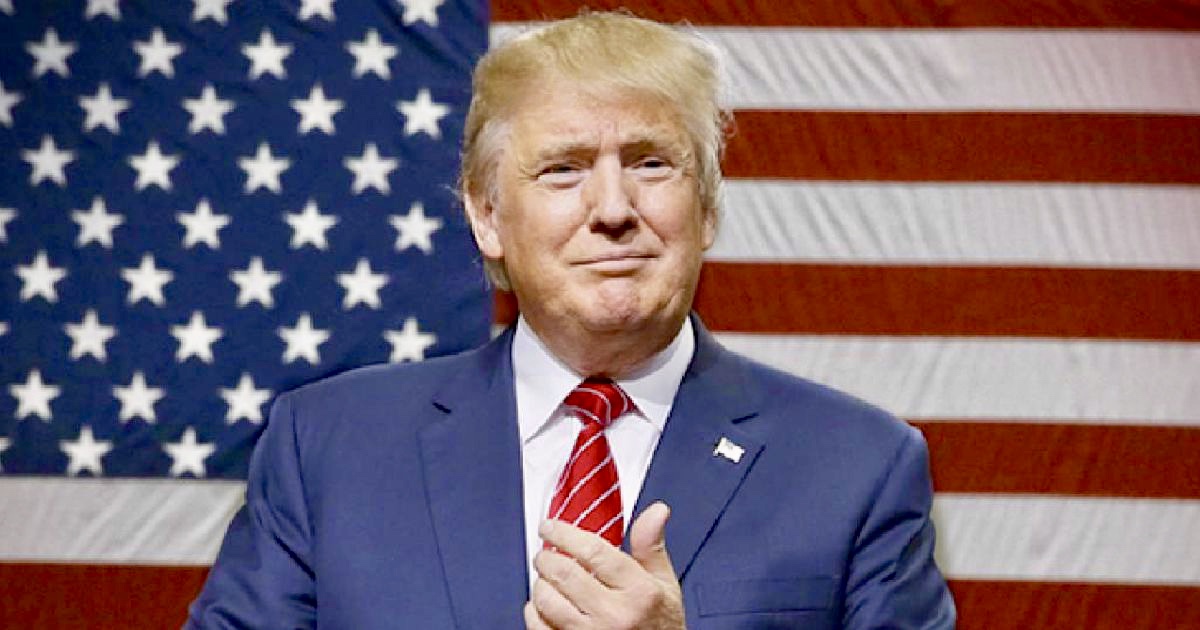The 70-year global progress toward freer trade is permanently reversed so long as the Republicans hold the White House. That’s the message of the non-deal trade deal just announced between the U.S. and China. It’s a deal that reduces no existing tariffs and offers only symbolic changes in other terms that were already on the table two years ago. Never mind that every credible source says that this situation loses billions or trillions in productivity in seen costs and unthinkable costs in what is not seen.
The only good news coming from this deal is that the U.S. has temporarily pulled back on the imposition of even more tariffs later this month. While robbery is better than assault, and a promise to steal less in the future can’t be brushed off as irrelevant, this trade deal does nothing to improve relations between the countries relative to the status quo of two years ago. However, in times when symbols matter more than reality, the US president can control the spin and therefore wins the day.
The only concrete change here – leaving aside some vague financial-access concessions – comes from China in the form of asking Chinese companies to buy $10 billion more soybeans and pork than is currently on the table, purchases extended over an uncertain period of time.
This would help address a major political problem of the Trump administration that the American agricultural sector has been suffering from a vast loss of its export markets due to the trade retaliation that the Trump administration said would never be imposed in this “easy to win” trade war. It does not, however, compensate for billions more in losses, nor pay back American taxpayers for the latest $16 billion pushed out as agricultural subsidies designed to soften the blow of the war.
Among the other contentious issues that are not mentioned in this deal:
– Coordinating intellectual property rules in a way that would curb the ability of Chinese companies to reverse engineer technologies of American origin, an absurd hope that flies in the face of the very meaning of economic cooperation;
– A rolling back of existing tariffs of the U.S. against China and China against the U.S.;
– Chinese subsidies to technology companies or US subsidies to agriculture;
– US restrictions on visas for Chinese visas;
– The rise of US export controls against China;
– The fate of Huawei;
– Alleged cyberhacking of Chinese origin;
– Enforceable rules on foreign-exchange valuation which are governed by market forces.
Why would the Trump administration proclaim this a victory when it actually seems merely to codify tariffs as policy? It comes down to two factors. First, the economics of this trade war is obviously and overwhelmingly negative. There are no credible outliers on this claim. This also spells some political trouble with heartland voters who have felt the pain most intensely. The mere hope of a solution was enough to lift financial markets.
Second, selling more product abroad is one way that mercantilists (Trump is an adherent of that deprecated school of thought) believe that they will reduce the “trade deficit,” an accounting fiction that is not only miscalculated but is irrelevant even if it were accurate.
The reality of what will not change except perhaps some of the planned tariffs is revealed in this chart from Goldman Sachs.
Another factor goes beyond any proposed deal or any future negotiations. It is the problem of trade uncertainty. Businesses and investors need a predictable regime to plan years in advance. That stability has been shattered as a result of executive-branch impositions that bounce around week to week, always the goal of making it clear who is in control.
So long as the U.S. runs a trade deficit with China (at least on paper), the Trump administration is likely to push for more tariffs under the mistaken belief that China is paying them, that these will make it disappear, and that this matters one whit for the fate of world prosperity.
Following the disastrous Smoot-Hawley tariffs of 1930, Congress turned over its constitutionally-codified power to regulate international commerce to the office of the president. The belief that this would remove the problem of special-interest protectionism held true for the remainder of the 20th century and until 2018, when the centralization of power came back to bite the great cause.
Today Congress is statutorily impeded from stopping a continued march toward autarky, lest there appears some bipartisan legislation structured to take it back. The problem is that the Republican president has received almost no pushback from the Democrats against his trade policies; indeed, the leading contender for the Democratic presidential nomination, Elizabeth Warren, holds to a doctrine of “economic patriotism” that is not different in substance from Trump’s own.
You have to look hard to find good news in this poor excuse for a U.S./China trade deal, but there is this: there is no longer much dispute about the harm the trade war has caused everyone – everyone but the man who will claim to have won it.
Jeffrey A. Tucker

Jeffrey A. Tucker is Editorial Director for the American Institute for Economic Research. He is the author of many thousands of articles in the scholarly and popular press and eight books in 5 languages, most recently The Market Loves You. He is also the editor of The Best of Mises. He speaks widely on topics of economics, technology, social philosophy, and culture. He is available for speaking and interviews via his email. Tw | FB | LinkedIn
This article is republished with permission from the American Institute for Economic Research.





27 comments
hard rock casino online
online casino games
cheapest viagra online
viagra sample
casino slots gambling
slot games online
free slots
real money casino
cialis prices
tadalafil generique
loan online
online loans
cash loans
quick cash loans
payday loans
instant loans
viagra for sale
viagra cost
cialis 20
generic cialis
generic cialis
5 mg cialis
cialis 5 mg
cialis internet
new cialis
generic cialis
real money casino games
free casino games
casino slots
real money online casinos usa
online casino usa real money
rivers casino
rivers casino
slots online
generic sildenafil
female viagra
generic viagra reviews
viagra online prescription free
viagra 100mg
viagra without a doctor prescription
tadalafil 10mg
cialis 5mg
tadalafil generique
buy cialis online overnight shipping
cialis professional
buy cialis pills
tadalafil 10mg
tadalafil dosage
best online casino for money
slot games
real money casino online
casinos online
Get viagra
Viagra next day